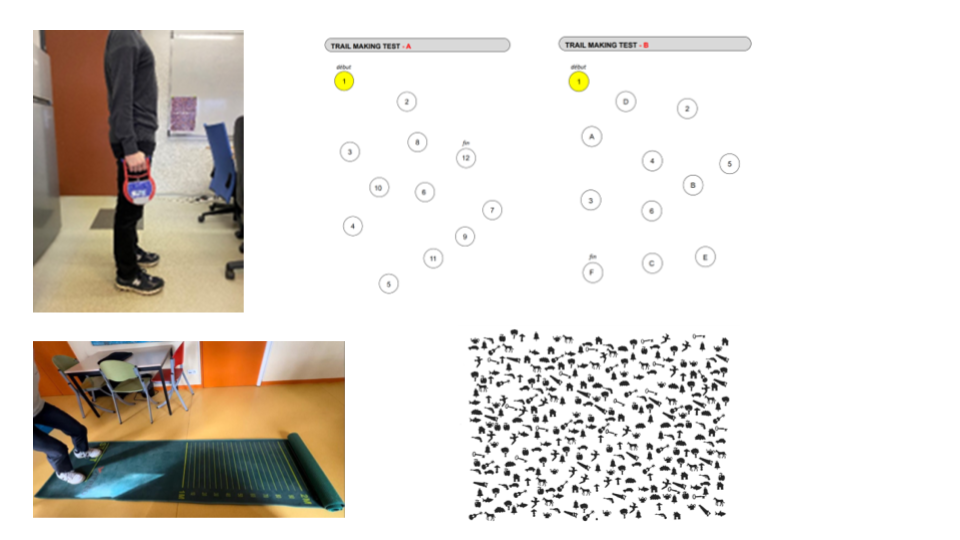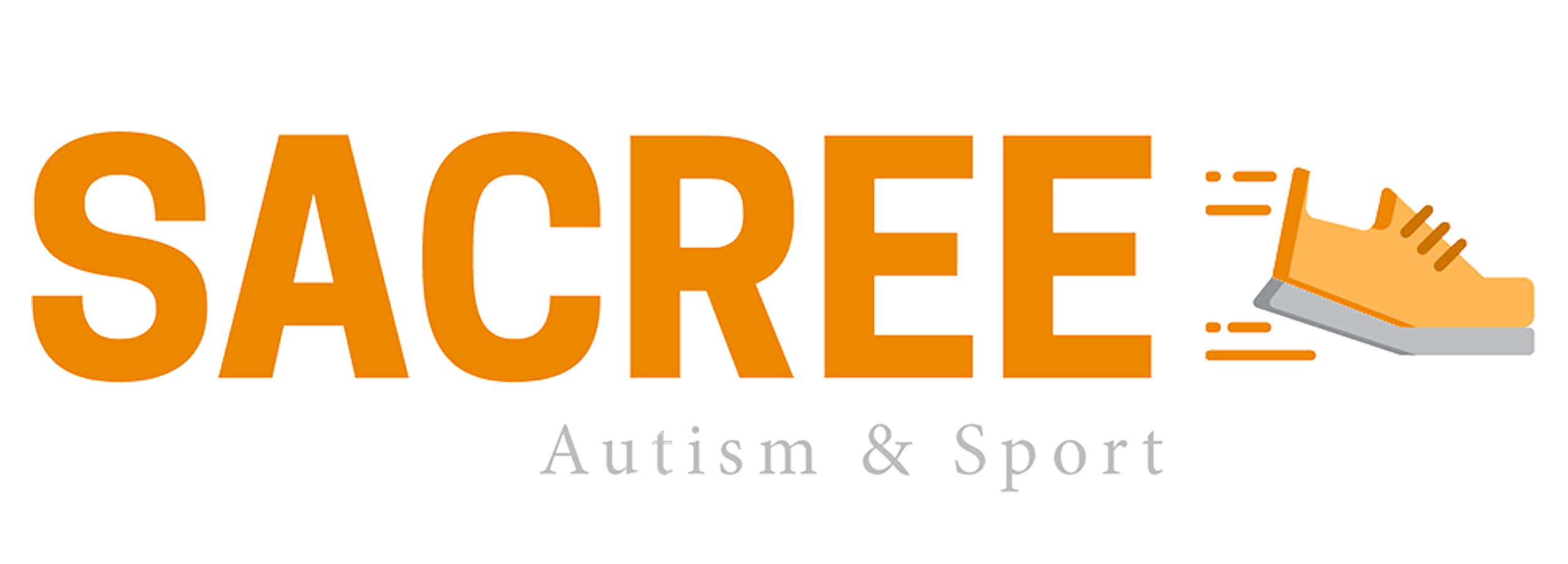To provide a scientific basis for our model of sports programs adapted for autistic people, the Sacree team is carrying out field tests in Croatia, France, Italy, and Portugal.
The C3S laboratory at the Université de Franche-Comté, which is overseeing the scientific part of the project, has drawn up a test protocol, the results of which will enable us to:
- Evaluate the effects of sport on autistic people (for structures that carry out tests at T0 and then at T1 after a few months of sporting activity),
- To gain a better understanding of the skills/capacities/deficits of autistic people (for facilities that only carry out the tests once).
This protocol includes:
- Handgrip test with a dynamometer to measure grip strength
- Long jump to measure lower limb power
- 200-meter brisk walk to test aerobic endurance
- Balance test
- Fitts’ law test to measure the time needed to go around circles without exceeding the marked area
- Box and block test to measure unilateral global dexterity
- Tracing test to assess flexibility, visual scanning and working memory
- Bell test to assess selective and focused visual attention, visual perception and visuo-motor processing speed
- Go-NoGo test to assess reaction time and inhibition capacity
- Laterality evaluation test, mental rotation to assess implicit mental representation skills
- Psychosocial evaluation tests
Below are some illustrations of these tests:

Approximately 90 autistic people took part in these tests, depending on the possibilities and desires of the structures and people tested.
Tests were also carried out on neurotypical people to determine whether there were any general differences between autistic and neurotypical people in terms of physical condition.
We’d like to extend our heartfelt thanks to all the structures that took part and to the people who were tested!
The results are currently being analysed, and we invite you to continue following our project to discover the results!

